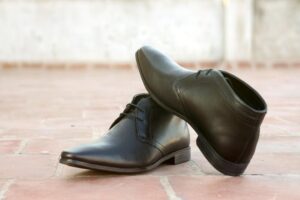
As the world learned in 2020, a global pandemic may occur at any time. The entire world came to a complete stop, and very few people were prepared to weather the fallout. Experts no longer say if a pandemic will occur. Today, they talk about when. Every person needs to prepare for the next major crisis. Those who have the proper supplies on hand will find survival during a difficult time becomes much easier.
A person might rush out and buy gloves, masks, and hand sanitizers in preparation for the next pandemic. What if it isn’t a pandemic but a major terrorist attack? Certain supplies are needed for any emergency, including food and personal protective equipment. What items should every person have on hand at all times?
Canned Food
A year’s supply of canned food should be found in every home today. Even if grocery stores remain open, the shelves may be bare. Disruptions in supply chains could lead to people not being able to get essential goods. Having canned foods on hand ensures they will not go hungry.
Experts recommend having a minimum of four weeks on hand, although a year’s supply is preferred. A person can slowly stock up on items once the four-week supply is in place. It never hurts to pick up some snack items too, if they can be kept in the home without family members eating them quickly. When buying canned goods, don’t forget to invest in a few manuals can openers. If the electricity goes out, these devices will become invaluable.
Water Supply
People need water more than they need food. A person can live up to a few weeks with no food or water. Provide them with water and they can actually survive a few months, even if they have nothing to eat. Many factors determine how long a person can go without basic essentials before they succumb, but water is definitely a priority when preparing for a disaster.
Every family member needs one gallon of water per day. Many people choose to invest in factory-sealed bottled water as it stays fresh the longest. In addition, every family should have a water filtration device and purification chemicals. With these items, the family can pull water from a natural source and ensure it is safe for consumption.
Electrolyte packets
If a person suffers from a gastrointestinal problem, they can quickly deplete the fluids in their body. These fluids need to be replaced along with any electrolytes lost. Include electrolyte drink packets in the emergency kit for use when a person becomes ill. Water alone isn’t enough in this situation. When choosing these packets, look for those that are low in sugar.
Disposable paper products
Disposable cutlery and paper plates are of great help in an emergency. Water will not be needed to clean dishes. It can be conserved for other purposes. In addition, germs won’t be spread through dishes that weren’t cleaned properly. Don’t overlook napkins and plastic or Styrofoam cups when purchasing disposable items for use during an emergency.
First-Aid Kit
People should have a well-stocked emergency kit at all times. Accidents happen, and it is best to be prepared. When stocking this kit, don’t forget over-the-counter and prescription medications. Many people have these items in their homes and replenish them as needed. They need to have extras on hand in the event of a disaster. A pharmacy may not be able to open, and they could be without life-saving medications.
Stock up on a variety of medications, including diarrhea medications and eye drops. However, be sure to rotate these items out much as you do food, so they don’t lose their potency. Hand sanitizer is another item that should be found in every first aid kit.
Face Mask or Respirator
Respirators are often needed during emergencies. As people learned during COVID, there is much disagreement regarding the effectiveness of different types of masks. N-95 masks were difficult to find, and cloth masks provided limited protection. A person needs a respirator that will protect them from numerous contaminants.
However, they must ensure this respirator fits properly and they know how to use it. This ensures the mask will provide the anticipated level of protection. Don’t forget to stock up on extra cartridges or filters, either. They may be needed if recovery from the disaster takes an extended period.
Surgical Gloves
Every first-aid kit and home needs disposable gloves. However, most people wear them incorrectly. If the fear of germs is the reason for donning the gloves, only wear them in places where others are present. Don’t wear them in the car or at home unless a family member is ill. Take them off before touching personal items to avoid contamination. If the gloves are worn all day, they are useless. Leave them off and touch everything with your bare hands. There is no difference. Obviously, when treating someone who is ill or injured, gloves should be worn. Again, dispose of them as soon as possible after helping this person to prevent contamination.
Face Shields
Face shields are not the same thing as face masks. This shield protects a person from droplets of moisture, including those distributed when a person coughs or sneezes. It ensures the droplets don’t reach the mucous membranes, where they can take hold and make a person sick.
These devices are easy to wear and clean. A person can wear them for an extended period with no discomfort. These shields are also easier to disinfect than respirators.
Hazmat Suit
A hazmat suit protects the body and skin from potential hazards, much as a respirator protects the face and internal organs. This is one item a person should invest in well before a disaster, as they will fly off the shelf when things go south. Invest in a hazmat suit for every family member, ensuring the suit is easy for young children to put on quickly. Look for one with elastic around the wrists and ankles to prevent contaminants from making their way into the suit.
Disinfecting Wipes
Anyone who went to purchase disinfecting wipes during COVID knows how hard they were to find. Stock up on these essential items well before they are needed. In addition, pick up a disinfecting solution so a cleaner can be made at home and used with washcloths or paper towels. Washcloths are preferred because they can be disinfected in the washing machine and reused. However, paper towels are helpful in a pinch. The key is to find a disinfectant that will kill the largest number of hazards, so multiple products won’t need to be purchased and stored. However, never mix cleaners together, as doing so could create a whole new hazard.
Duct Tape
Ask many people and they will say duct tape can repair anything. While this might be a slight exaggeration, duct tape is helpful in countless situations. Use it to hang plastic over windows or wrap it around wrists and ankles to prevent contaminants from making their way into clothing. Repair holes in clothes with duct tape, tape items together, or temporarily stop a leak in a pipe or slow it until a permanent repair can be made. Invest in quality duct tape for the best results, as it is stronger and resists moisture better.
Guns and Ammunition
Sadly, people may be the greatest danger during a crisis. A person needs to protect themselves from harm, as one can never tell what other people will do when they panic. Having one or more guns on hand along with ammunition will help deter others from taking advantage of the situation.
Masks and other items needed to keep people safe give criminals a sense of anonymity, and they will take advantage of this. Every person needs to be prepared to defend themselves in these situations. However, invest in the proper training, so the gun protects you and will not be used as a weapon to harm you.
Cash and Items to Barter
Every person will find they need something during a crisis. Nobody can prepare for any eventuality. One of the best things a person can do is ensure they have cash on hand to buy essentials. Having items or skills to barter will also be of great help in this type of situation. Credit may not be available, so every person needs to prepare for a cash-only society. If cash isn’t readily available, having items to barter and bartering skills will be priceless. In addition, precious metals are a good item to have, as they can be used as currency if the government’s currency becomes worthless.
Any disaster is frightening. People prepare for some disasters and not others, as they assume these disasters will never happen. The global pandemic showed just how wrong that assumption is. If a person is prepared, they can survive almost any disaster today and hold on until a new normal is established. Preparation is key in these situations, as it may be too late when disaster strikes. Start slowly and build up an emergency kit over time. Doing so will provide you with peace of mind when the worst occurs.







